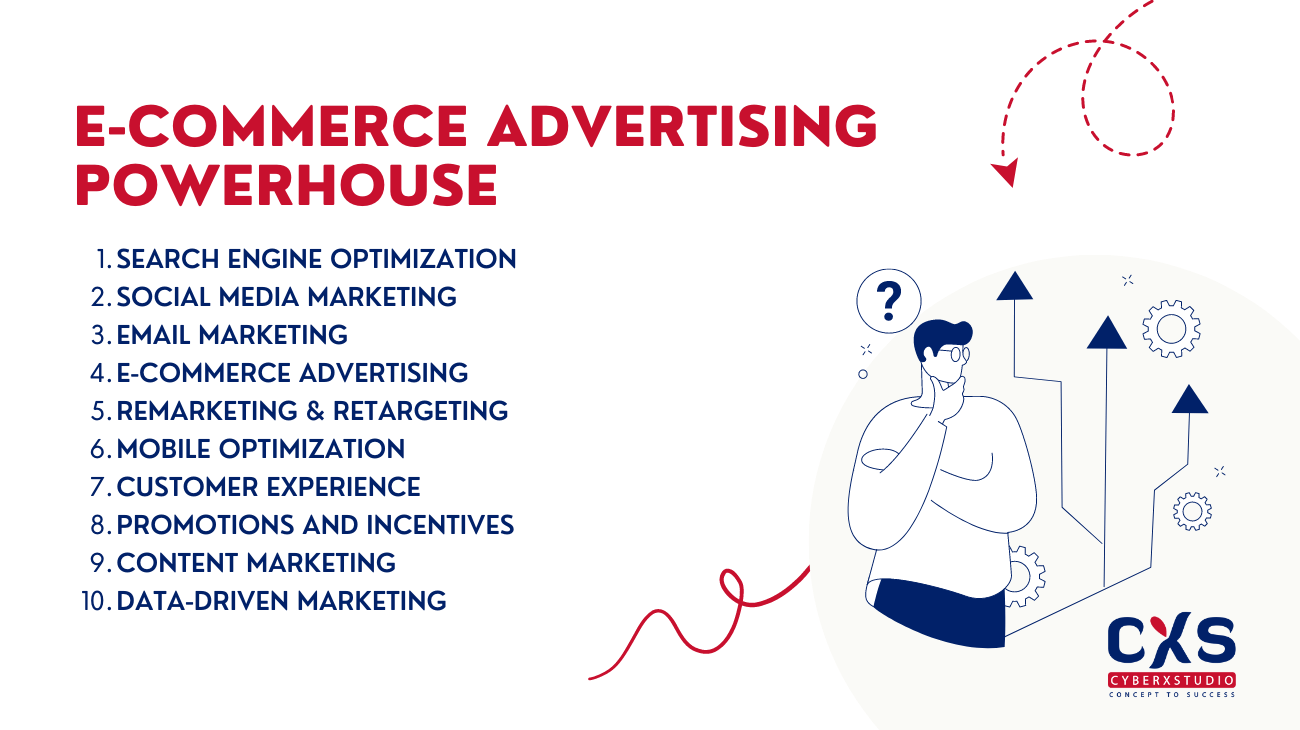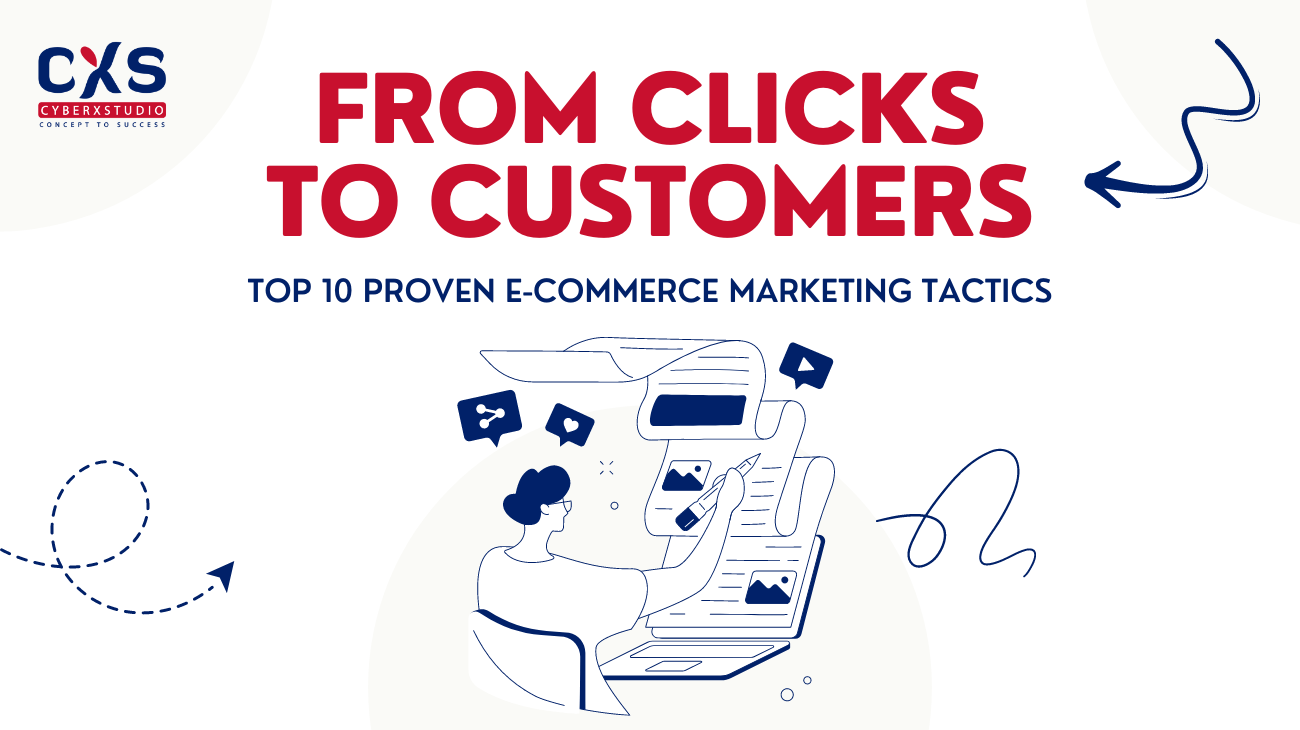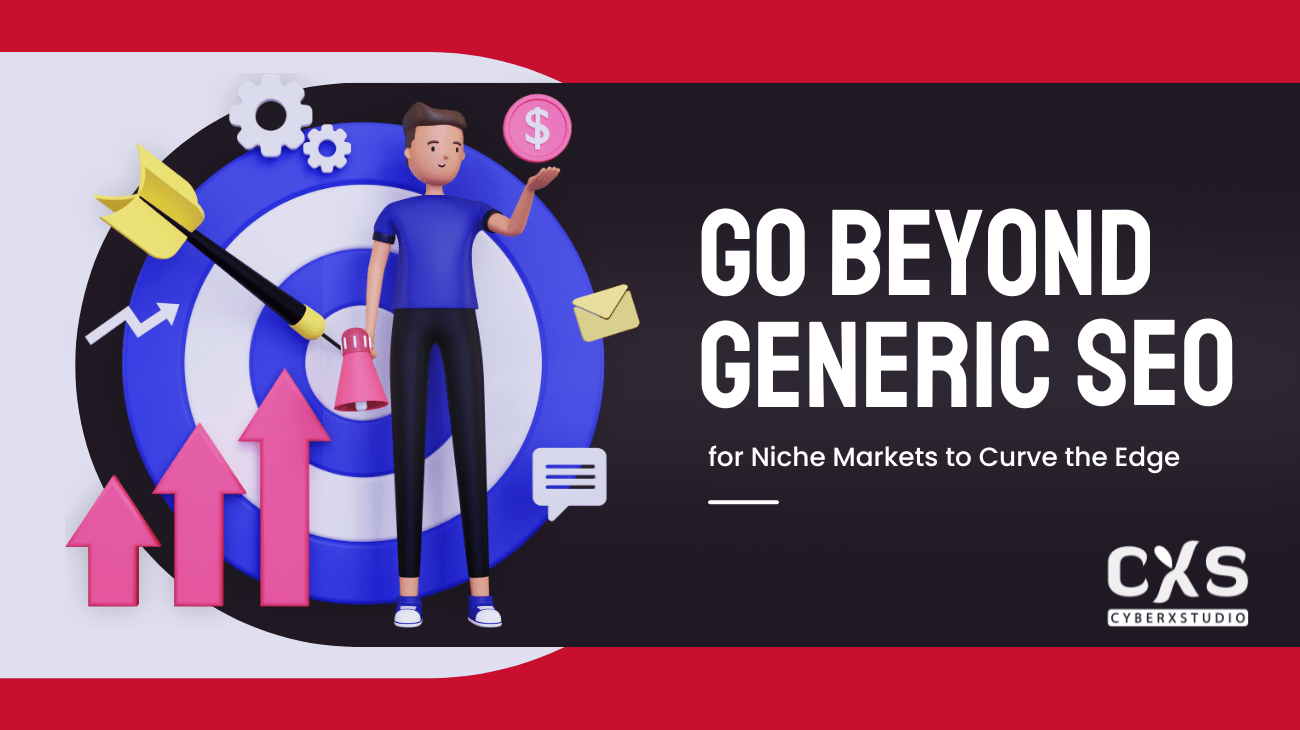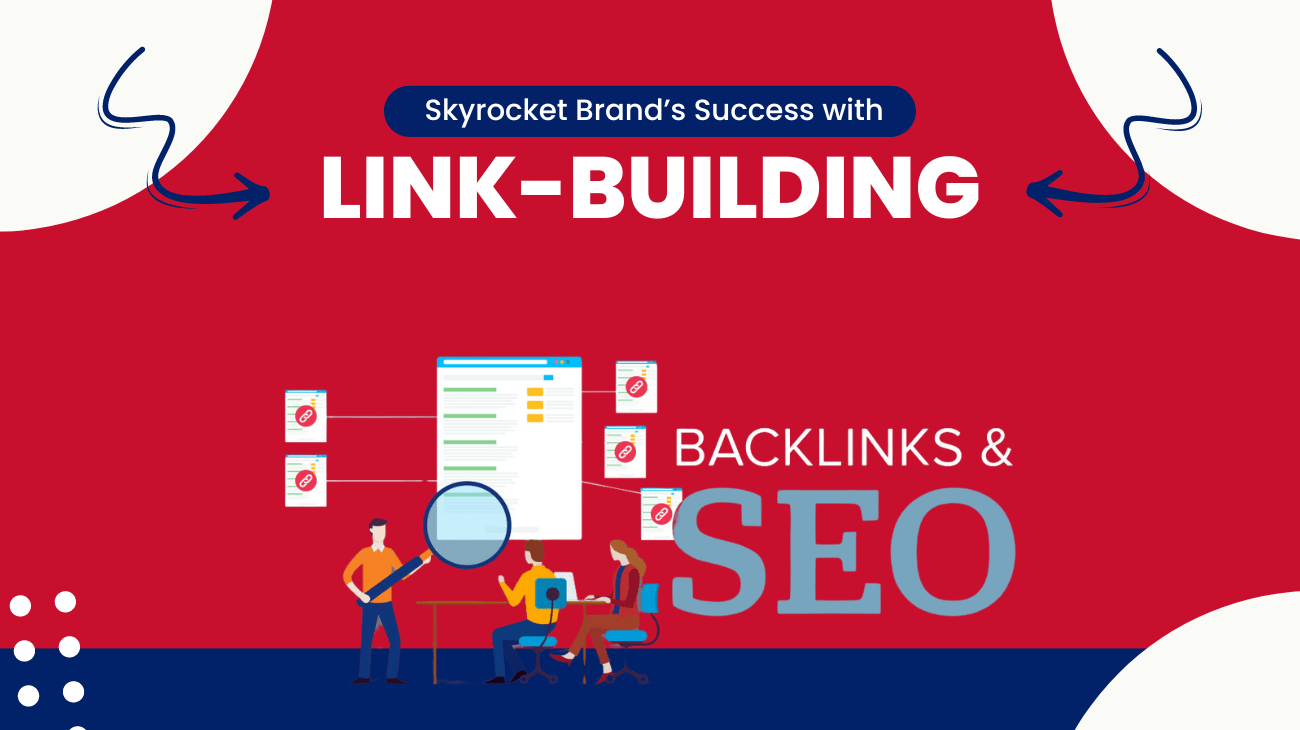The e-commerce landscape is booming, with the global market worth estimated at $6.3 trillion in 2024. As a massive number of consumers turn to online shopping, businesses require data-driven e-commerce marketing strategies to thrive.
E-commerce marketing is all about attracting customers to your online store and turning them into buyers. It uses tactics like Search Engine Optimisation (SEO), social media, and email campaigns and to attract the audience to your website. Once they’re there, good marketing makes it easy for them to find what they want and buy it, with things like mobile-friendly sites and abandoned cart reminders.
Marketing also encourages them to come back for more through loyalty programs and personalised recommendations. Read on to learn more about ecommerce advertising.
Don’t Get Lost in the Crowd; Understanding E-Commerce Marketing
E-commerce marketing, also known as e-marketing or digital commerce marketing, encompasses all the tactics used to promote products and services online, attracting potential customers and converting them into paying ones. It’s a multifaceted approach requiring a deep understanding of your target audience, the products you sell, and the digital channels you leverage, for instance, social media handles.
E-Commerce Marketing Guide – The Vitals
Before diving into specific tactics, consider these crucial aspects:
Know Your Target Audience:
Before creating an ecommerce marketing strategy, understand Who you are selling to. Understanding their demographics, interests, and online behaviour is vital for tailoring your marketing efforts.
Define Your Goals:
What do you want to achieve? Is it increased brand awareness, driving traffic, or boosting sales?
Analyse the Competition:
Research your competitors’ marketing strategies to identify opportunities and differentiate your brand.
E-Commerce Advertising Powerhouse: Building Your Marketing Strategy
Now, let’s explore some of the most effective e-commerce marketing strategies to drive sales and conversions:

Search Engine Optimization (SEO)
One of the top practices in an effective e-commerce promotion strategy is ranking your website high in search results by targeting keywords relevant to your brand. This organic visibility attracts potential customers actively searching for the products you offer.
Product Listing Optimization: For effective marketing ecommerce, optimise product titles, descriptions, and images with relevant keywords.
Content Marketing: Create valuable content (blogs, articles) that brings information to your audience’s disposal and builds your worth as an industry authority.
Technical SEO: Make certain that your brand’s website or application loads quickly, has a user and mobile-friendly interface, and a clean structure for search engines to crawl and index effectively.
Social Media Marketing
To reap the full potential of ecommerce digital marketing, Leverage the power of social media platforms like Facebook, Instagram, and TikTok to better engage with your target audience, build brand awareness across different locations, and showcase your products.
Engaging Content: Share captivating images, videos, and stories that resonate with your target audience.
Paid Advertising: Leverage social media advertising platforms such as Meta, TikTok, and others to reach your audience with specific demographics and interests with laser focus.
Community Building: Foster a community by responding to comments, hosting contests, and encouraging user-generated content.
Email Marketing
Email e-marketing remains a powerful tool for nurturing leads, promoting products, and driving sales.
Building Your Email List: Offer incentives like discounts or exclusive content to engage and convert more audience into sales in exchange for email signups.
Segmentation: Divide your email list per past customer behaviours and interests to schedule targeted campaigns, increasing engagement and conversion rates.
Promotional Emails: Utilize email marketing to promote new products, offer exclusive discounts, and re-engage abandoned carts.
E-commerce Advertising (PPC)
Pay-per-click (PPC) is the type of advertising that aids in marketing e-commerce by targeting users who are using a specific search term or keywords that are related to your brand/products. Platforms such as Bing Ads and Google Ads offer targeted advertising options.
Keyword Research: Conduct thorough keyword research to identify relevant terms with high search volume and low competition.
Landing Page Optimization: Optimise your landing pages for conversions with a clear call to action and a seamless user experience.
Campaign Monitoring: Continuously monitor and adapt your PPC campaigns based on performance data to maximise return on investment (ROI).
Remarketing & Retargeting
This e-commerce marketing strategy is one of its kind, as it enables you to show ads to customers or visitors who have previously visited your website but haven’t converted. This strategy reminds them of your brand and entices them to return and complete their purchase.
Dynamic Product Ads: Showcase products users have viewed on your website through retargeting ads, increasing the chance of a conversion.
Abandoned Cart Recovery: Target users who abandoned their carts with personalised emails reminding them of the items left behind and offering incentives to complete the purchase.
Mobile Optimization
As the number of mobile users continues to increase to 4.88 billion people worldwide, the trend towards shopping is massively shifting from in-store to online purchases. Amidst this shift, having a mobile-friendly website has become more pivotal.
Responsive Design: Ensure your website is set to automatically adjust for an enhanced experience across different devices such as tablets, smartphones, and laptops.
Fast Loading Speeds: Optimize images and code to make sure your website does not have a slow interface and loads seamlessly on mobile devices, enhancing user experience and reducing bounce rates.
Customer Experience (CX)
CX is another effective e-commerce strategy involving prioritising a seamless and positive customer experience across all touchpoints.
Product Information: Provide detailed and high-quality product information, including descriptions, specifications, and high-resolution images.
Easy Checkout: Streamline the checkout process, minimising steps and offering multiple payment options.
Excellent Customer Service: Integrate manual or automated responsive and helpful customer service that promptly addresses concerns and queries from users.
Promotions and Incentives
Strategic promotions and incentives can entice customers to purchase and drive sales.
Discounts and Coupons: Offer limited-time discounts, flash sales, coupons, or any such offerings that intrigue a sense of excitement, urgency and encourage conversions.
Loyalty Programs: Implement loyalty programs to reward repeat customers, incentivise them to spend more, and foster brand loyalty.
Free Shipping: Offer free shipping promotions above a certain purchase threshold to reduce cart abandonment and encourage higher order values.
Content Marketing
This e-commerce promotion strategy is one of the most effective practices. Create valuable content that educates, entertains, and informs your target audience.
Blog Posts: Publish informative blog posts addressing customer pain points and showcasing your products as solutions.
Video Marketing: Utilise engaging product videos, behind-the-scenes, and tutorials that build a stronger connection with your brand’s target audience.
Influencer Marketing: Find and collaborate with influencers having a high following in your niche to promote your products to their established audience and leverage their credibility.
Data-Driven Marketing
The last e-commerce marketing strategy in the list is tracking and analysing the data you obtain from the audience visiting your website, advertising campaigns, and emails.
Conversion Tracking: Implement conversion tracking to understand which among all the e-commerce marketing channels routed the most conversions and sales and optimise your budget allocation accordingly.
A/B Testing: Conduct A/B testing on elements like website layouts and product descriptions, and modify email subject lines to check which attracts the most attention.
Customer Reviews: Encourage and showcase customer reviews to build trust and social proof, influencing buying decisions.
Beyond the Basics; Advanced E-Commerce Marketing Strategies
[please design an image that aligns with this H:2 and include all H:3s in it]
Personalisation: Power Up Your Customer Experience
Personalise the shopping journey by tailoring product recommendations, email content, and website suggestions based on individual preferences and browsing behaviour. This e-commerce advertising practice creates a more engaging experience that fosters loyalty.
Seamless Journey through Omnichannel Marketing
Craft a unified e-commerce marketing strategy across all channels – website, social media, email, and even physical stores, if applicable. This ensures that your customers get a consistent brand experience, no matter where they interact with you.
Speak to the Future with Voice Search Optimisation
As voice search becomes increasingly popular, optimise your website content and product descriptions for voice queries. This improves discoverability and ensures your brand is easily visible and accessible by an audience searching for products that you already have in store using their voice assistants.
In the End
E-commerce marketing is an ongoing process. In order to create an effective and sustainable strategy, keep track of the latest consumer and buyer behaviour trends, modify your e-commerce advertising tactics based on data and customer feedback, and continuously refine your approach to maximise sales and conversions in the ever-evolving online marketplace.
Hence, a successful e-commerce marketing strategy requires a multi-pronged approach. By leveraging the above strategies and continuously refining your tactics, you can attract new customers, build brand loyalty, create a repute in the industry, and generate sustainable growth for your online business.
Partner with CyberX Studio for Best E-Commerce Marketing Strategies
As a data-driven digital marketing agency, CyberX Studio understands the intricacies of e-commerce and offers proven e-commerce marketing strategy services to elevate your online business. Our team of experts creates comprehensive marketing plans encompassing SEO, social media, email marketing, and more, all guided by data analysis to maximise your ROI. We focus on providing a seamless customer experience through website optimisation and strategic customer service, ensuring your success in the ever-evolving e-commerce landscape.
Partner with CyberX Studio to achieve sustainable growth for your online business.




